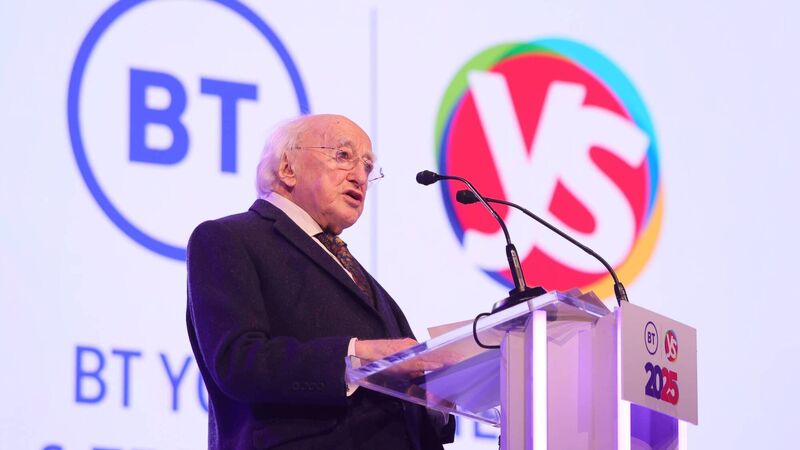Mick Clifford: Michael D Higgins's words have consequences

At the recent BT Young Scientist & Technology Exhibition, President Michael D Higgins criticised Nato's call for more spending on armaments.
I once saw Michael D Higgins give a talk about the evolution of the global political economy from Bretton Woods, the agreement hatched by the allies after the Second World War.
He went through the Cold War onto the oil crisis of the 1970s, the neoclassical Chicago school of economics, Thatcherism, the growth of neoliberalism, and the banking collapse, before eventually arriving in one piece at the present day.















